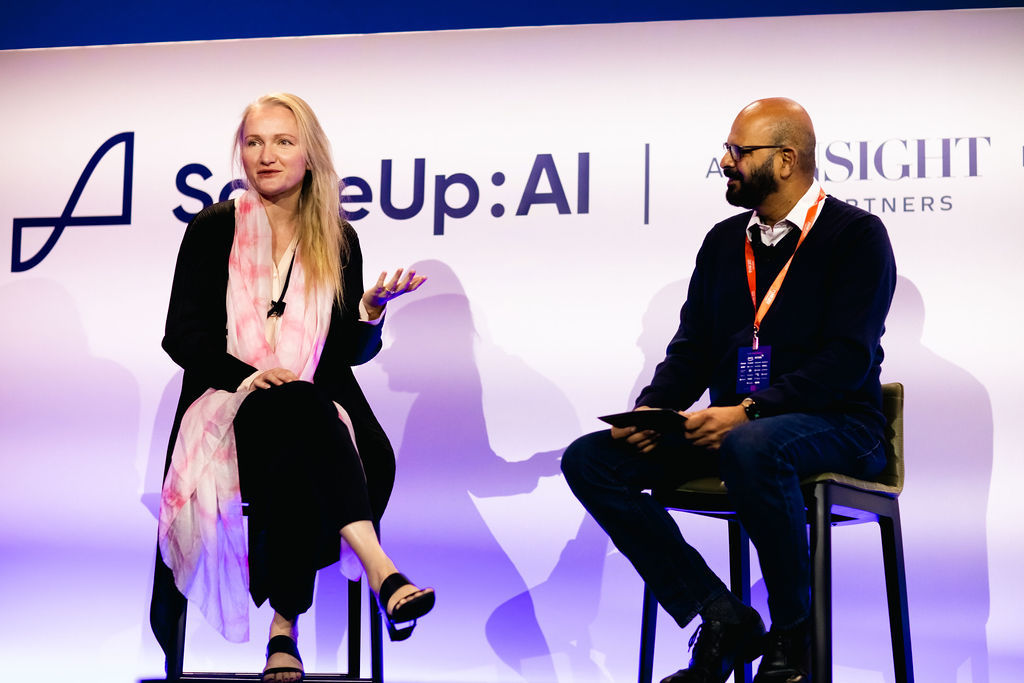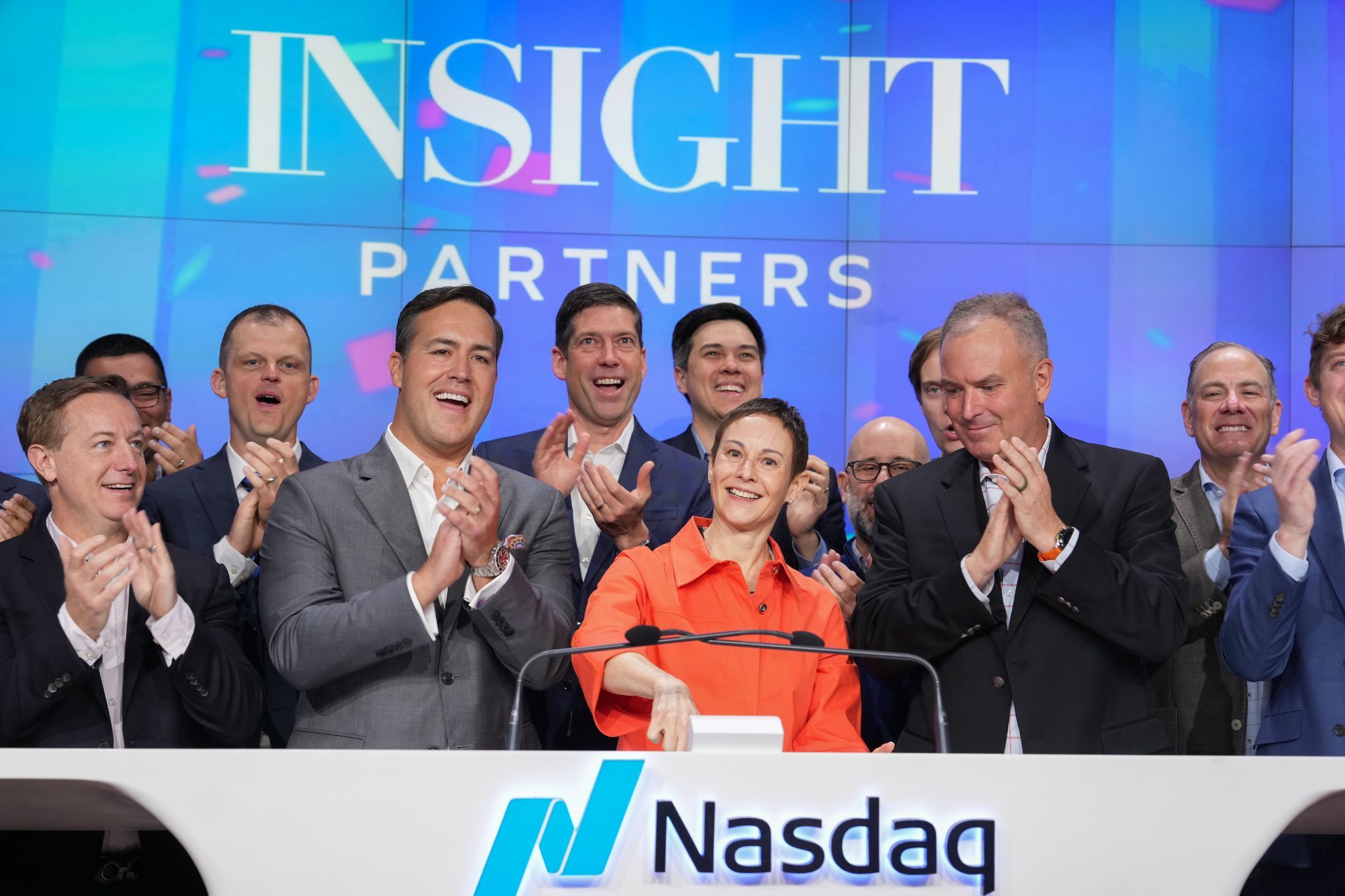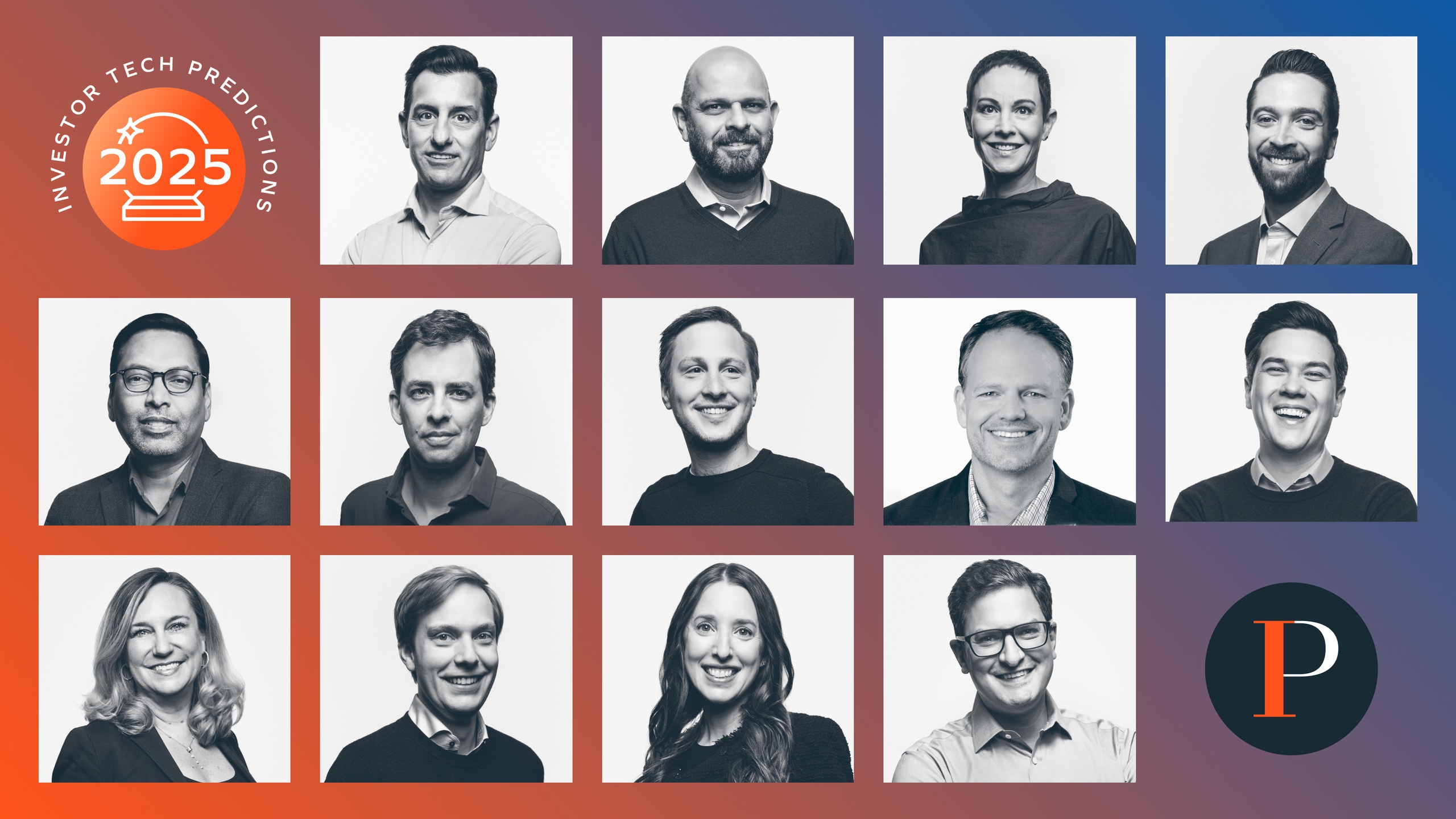Dispatches from the frontlines of the AI revolution

Artificial intelligence is disrupting business models, sparking new ideas, and driving a surge in economic productivity. Microsoft’s Deputy CTO Lila Tretikov and Managing Director Praveen Akkiraju bring us to the forefront of this transformation, with insights on responsibly scaling up AI — and evidence of its impact and how it’s generating genuine value.
These insights came from our ScaleUp:AI event in October 2023, an industry-leading global conference that features topics across technologies and industries. Watch the full session below:
The rise of AI is like an explosion, but it has been a long time coming
Tretikov noted that AI has been around conceptually for 50 years, but recent advancements have made it seem like a sudden explosion. More specifically, the development and capabilities of transformer architecture models (deep learning models) have made AI seem more human-like. “It feels like an explosion this year, but it was long in the making. I came to Microsoft to take AI initially out of the lab…and before that, Microsoft had been working on AI for decades and decades,” Tretikov said.
She also mentioned that the pandemic accelerated the adoption of AI, as businesses and industries have had to rely on technology to adapt and survive. Akkiraju agreed, adding that the pandemic has highlighted the importance of AI in healthcare, supply chain management, and other critical areas. However, both speakers emphasized the need for responsible and ethical use of AI, as well as the need for diversity and inclusion in its development and implementation. They also discussed the potential for AI to address societal challenges such as climate change.
AI has made tech more accessible by allowing users to communicate with machines in human language
“For the last history of computers, we had to all speak machine…this is the first time that you have to learn nothing. You are speaking to the machine in human language and [responding] in human language, which makes the barrier just drop to ground zero.”
Both speakers highlighted the significant shift AI has brought about in technology accessibility. Unlike before, when users had to learn machine language, users can now communicate with machines in human language. According to Tretikov, this change has brought down the barrier to entry to ground zero and propelled the diffusion of innovation into hyperdrive. “For the last history of computers, we had to all speak machine…this is the first time that you have to learn nothing. You are speaking to the machine in human language and [responding] in human language, which makes the barrier just drop to ground zero,” Tretikov explained.
An invaluable tool for infrastructure maintenance
Tretikov emphasized that AI is not just beneficial for end-user applications like chatbots, but it also has in maintaining backend infrastructure and API-to-API communications. She stated, “AI is incredibly valuable to your infrastructure because just maintaining backend infrastructure API-to-API communications, for example…AI is fantastic for that because it’s really good at coding.” She further explained that this can be particularly beneficial for non-technology companies that can download open-source orchestrators and use them in production within weeks.
By using AI for infrastructure maintenance, companies can greatly improve efficiency and accuracy. This means that even companies without extensive technical knowledge or resources can take advantage of AI’s capabilities and enhance their operations. Tretikov emphasized the importance of recognizing AI as a valuable tool for all aspects of a business, not just customer-facing applications.
“We’re kind of in the first gear”
Tretikov asserts that AI is only in the first gear of its journey. She predicted that the reasoning capabilities of AI models will continue to improve over time. However, they are stable enough to be used in their current state. “We’re kind of in the first gear…these models are going to get more capable, they’re going to get better…but you can still count on them to be stable in the sense that you can utilize them as they are right now,” said Tretikov.
“We’ve been thinking about this from the very beginning…Every feature goes through an ethical AI review…so when we first saw this latest really, really powerful GPT-4 model, we actually didn’t let anybody touch it except for our ethics team.”
Also discussed, the future of AI lies in its ability to collaborate and learn from human interactions, rather than just being programmed with data. Tretikov emphasized the importance of ethical considerations in the development of AI, stating that it is crucial to make sure that these models are used for the betterment of society. Despite the potential for advancements, she acknowledged that there are still challenges and limitations to be addressed, such as bias in data and a lack of transparency in decision-making processes.






